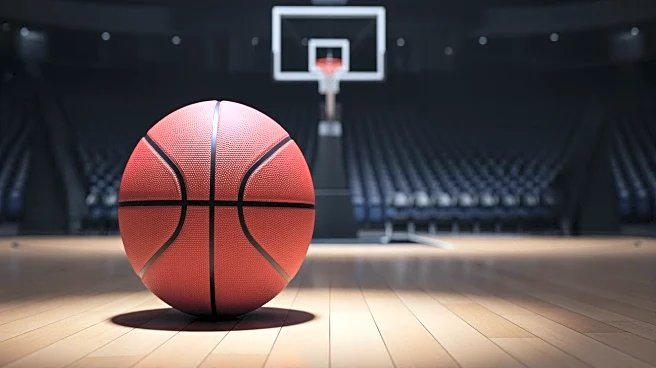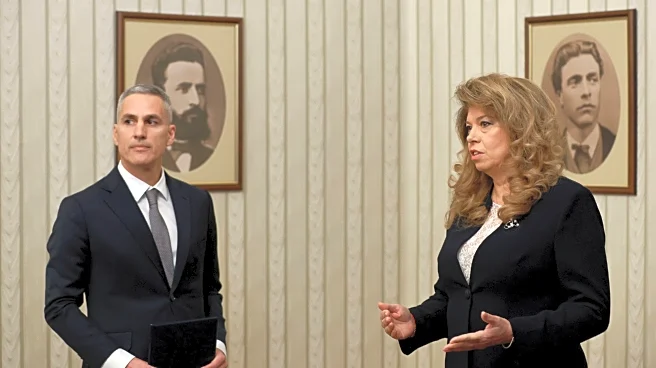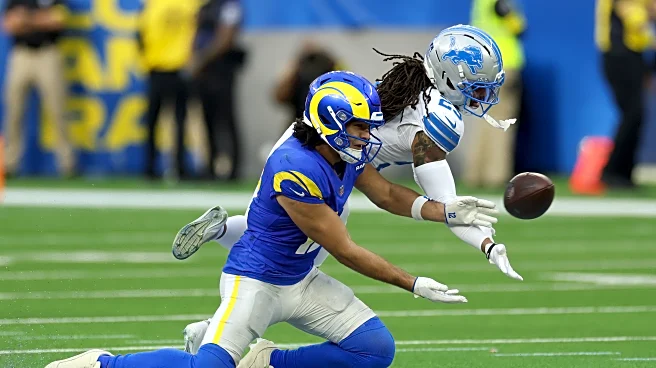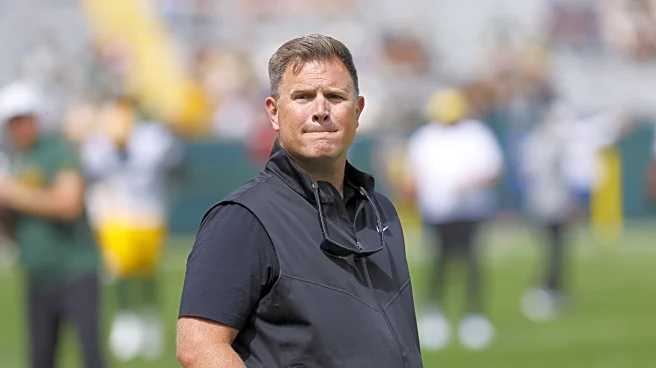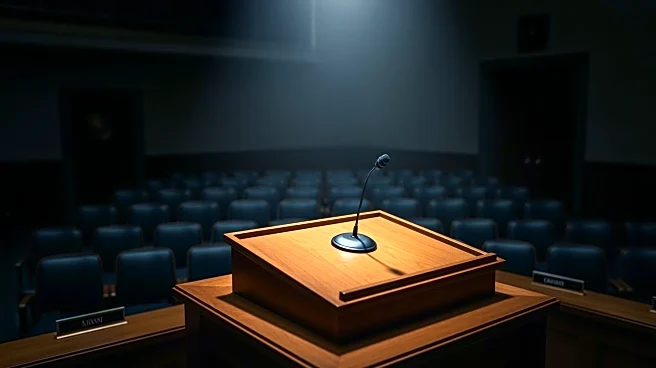What's Happening?
London Johnson, a former G League Ignite player, has committed to the University of Louisville, marking a significant shift in NCAA policies regarding player eligibility. Johnson, who initially bypassed
college to join the G League, is now able to play college basketball due to recent changes in NCAA rules. These changes allow players with professional experience, who have not been on an NBA contract, to regain college eligibility. This development follows a similar case with Thierry Darlan, another former G League player, who joined Santa Clara. The NCAA's evolving stance on amateurism now permits players to join college teams if their professional earnings are deemed to cover only 'actual and necessary expenses.'
Why It's Important?
This policy shift by the NCAA could have a profound impact on college basketball, potentially increasing the talent pool as more players with professional experience consider college as a viable option. The change blurs the lines between amateur and professional status, allowing players to benefit from college basketball's growing financial incentives, such as NIL deals and revenue sharing. This could lead to a more competitive and diverse NCAA landscape, attracting international players and those from professional leagues who previously would have been ineligible. The decision reflects a broader trend of redefining amateurism in college sports, which could influence recruitment strategies and the overall structure of college athletics.
What's Next?
As the NCAA continues to adapt its policies, more players with professional backgrounds may seek college opportunities, potentially leading to further adjustments in eligibility criteria. Colleges might increasingly target international and G League players, altering traditional recruitment patterns. The NCAA's approach to amateurism will likely face scrutiny and debate, particularly regarding fairness and the impact on traditional college athletes. Stakeholders, including college coaches, athletic directors, and policymakers, will need to navigate these changes carefully to maintain competitive balance and uphold the integrity of college sports.
Beyond the Headlines
The NCAA's decision to allow players like Johnson to join college teams raises ethical questions about the definition of amateurism and the role of financial incentives in college sports. This shift could lead to a reevaluation of the student-athlete model, as players with professional experience bring different perspectives and expectations. The long-term implications may include a more globalized college basketball environment, with increased competition for spots on college rosters. Additionally, the financial dynamics of college sports could shift, as schools and conferences adapt to the new landscape of player eligibility and compensation.
